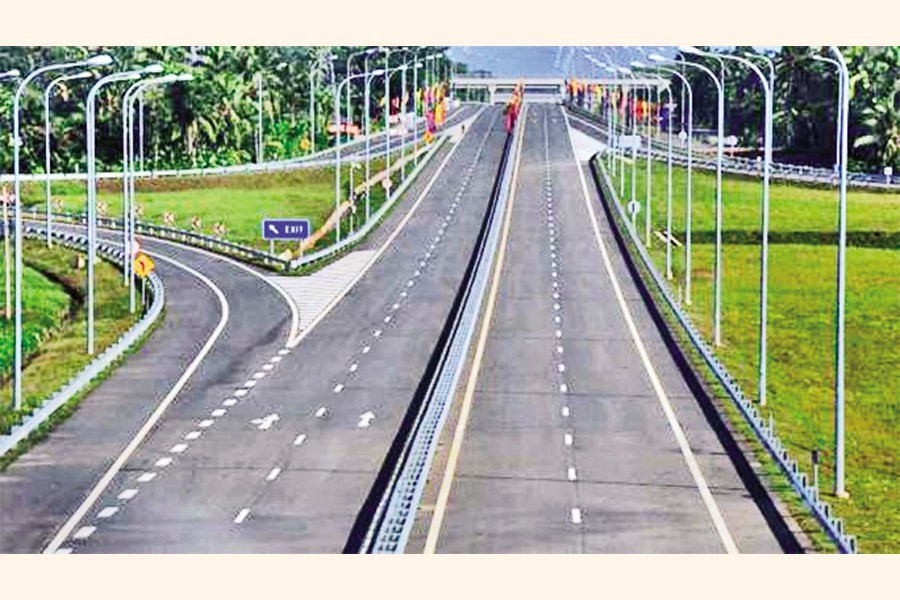Lesser-known consultancy firms from abroad grab most jobs of conducting feasibility studies on infrastructure-projects, limiting scope for top-ranking local or global bidders.
This practice, however, gives rise to problems during execution of many development projects, sources concerned said.
According to project-insiders, consultants, engineers and economists familiar with such matters, local firms can hardly compete in the bidding for feasibility study for withdrawal of incentives like over 20-percent cut rate in the contract price of any international bidding.
Major international consultancies from European and developed countries also feel less interest in such public-works schemes for the provision of lowest bidder in the public procurement rule.
Tender documents are often prepared in a way to favour specific firms, they alleged.
Chinese, Indian, Korean and Australian firms are currently dominating the local infrastructure projects.
British, European and American firms used to get work order in Bangladesh in the past, but they are conspicuous by their absence except for the Padma bridge project.
Limited Japanese firms get works in the Japanese government-funded projects, thanks to creating scope for them in the bidding documents.
According to Roads and Highways Department, five to seven local firms are capable of working in mega- projects but they cannot vie with international firms without partnership.
Seeking anonymity, a consultant for a mega-project says top global consultancy firms work with the consultants from those countries paying less remuneration.
"Experience is always expensive which cannot be found in the case of low-paid consultants," he added.
Project-insiders and consultants observe that some agencies that follow guidelines of the World Bank or the Asian Development Bank are sceptical about selecting lowest bidders for petty interest.
They also highlighted lack of strong monitoring and supervision of a firm's work at the time of preparation stage to ensure quality feasibility study.
The country's fast-track Padma bridge project faced first blow at the beginning of its physical work for failure in test-piling, which, experts later found, was due to fault in the feasibility study.
It is found that soil test results of 14 piers located in the middle of the 6.15-kilometre bridge were quite different from that of the study.
This study was done by the top-ranking New Zealand-based firm Maunsell-AECOM.
Same goes also for the Indian line-of-credit-funded Khulna-Mongla rail-link project.
The Bangladesh Railway is still facing problems with the implementation of the project due to a faulty feasibility study, detailed design and selection of Indian contractors as per the LoC condition, according to the sources.
Dr Khondaker Golam Moazzem, research director of the Centre for Policy Dialogue, says many projects are taken under political pressure and to serve vested quarters, hinting at the preparation of bidding documents in favour of specific firms.
Dr Ahsan H Mansur, executive director of the Policy Research Institute, blames the absence of accountability for creating scope for the agencies concerned in wrongdoing.
However, sitting and retired engineers differ on this point and say accuracy in a feasibility study is possible only when gap between the time of the study and physical work can be reduced.
Time lag changes many scenarios, they observed.
Padma bridge project director M Shafiqul Islam said project cost and time both escalate in most projects for this gap.
He cited as examples the projects where more than four years had been lost before the start of physical work.
Strict supervision at the time of feasibility studies and physical work can ensure getting level of quality work from any kind of firms, he added.
Ibne Hasan Alam, former RHD chief engineer, also emphasised a change of culture of conducting feasibility study in a year or two. The more time is given during the preparatory stage, he says, the more accuracy and speed can be ensured in implementation stage.
Mr Alam cites example that Japan usually takes 10-12 years at preparation stage for which it is able to complete big projects even in two to three years.
Of the mega-or priority projects, Dhaka-Chattogram four-lane project works took 12 years to complete 193-km highway development while 87-km Dhaka-Mymensingh four-lane project seven years.
Nine years have already gone in widening the 70-km Joydevpur-Tangail-Elenga highway.
The Elenga-Hatikamrul-Rangpur highway project took four years to start physical work while Dhaka-Sylhet-Tamabil highway four-lane work has yet to start despite a study and detailed design work done in 2015.
A consultant for a mega-project also blames preparation of a development-project proposal much earlier than the completion of a feasibility study and detailed design work for complicating project implementation.
Huge new components were added up to the Joydevpur-Tangail-Elenga and Elenga-Hatikamrul-Rangpur highway and Dhaka-Sylhet highway projects despite having feasibility studies and detailed design done earlier.


